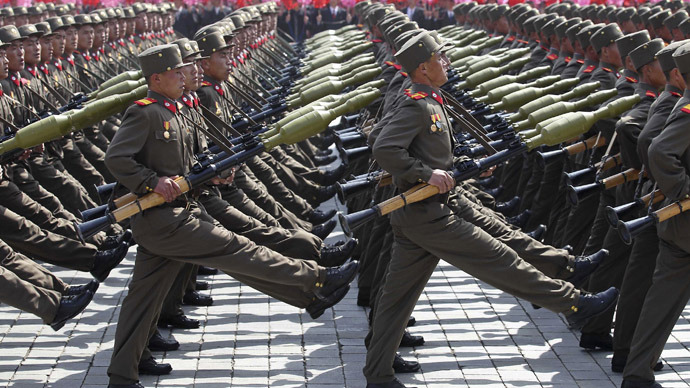The popularity of North Korea among Russians has almost halved in a month even though Pyongyang’s belligerent statements have not been aimed against Russia.
According to the latest poll released by the Public Opinion Foundation (FOM) only 34 percent of Russians think North Korea is friendly compared to 58 percent in early April.
Russians in general are concerned by North Korea’s active military preparations and its staunch refusal to stop the development of nuclear weapons.
60 percent of respondents hold that North Korea’s nuclear arms pose a threat to other countries with 28 percent having the opposite opinion and 13 percent undecided. 44 percent of those who think North Korea could use its nuclear weapons also think that Russia could become a target of such an attack.
At the same time, only 17 percent of respondents estimated the probability of war as high and 39 percent claimed that in their view the start of the war in Korea was impossible regardless of any developments. 25 percent said that the probability of the war existed but was extremely low.
The majority of Russians said that even if war breaks out on the Korean Peninsula their country must remain neutral, with only 8 percent saying that Moscow should offer its support to Pyongyang and 4 percent voicing support for North Korea’s supposed future opponents.

Another poll conducted by the All-Russian Public Opinion Center (VTSIOM) at the same time showed that 47 percent of Russians see North Korean activities as a real threat and 39 percent saying that Pyongyang was bluffing.
Russian officials also do not believe in the possibility of war between North and South Korea in the near future. Deputy secretary of Russia’s supreme security body – the Security Council – said this week that no one would profit from such war and therefore it will never happen.
Yevgeniy Lukyanov told the press that North Korea’s leader Kim Chong-un was a very young politician and if he wanted his rule to be long he had to evade the unnecessary risks and threats.
Meanwhile, the North Korean authorities continue apparent preparations for war, creating anti-tank barricades near the border.
Last week Pyongyang demanded that South Korea and the USA removed all nuclear weapons from the region setting this as a condition for future dialogue. Both Seoul and Washington rejected this demand as absurd.

